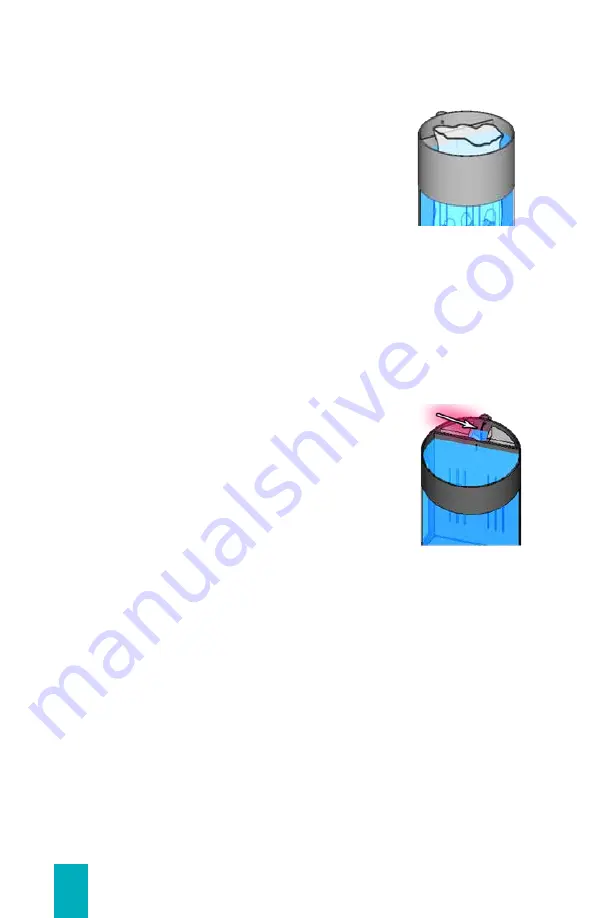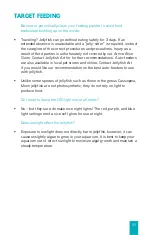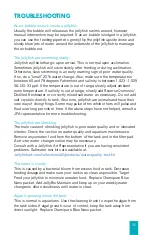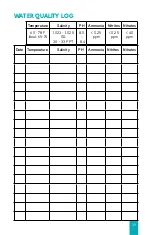
24
ACCLIMATION
5. Add 1/4 of a cup of system water into the acclimation bag. Be careful
that air bubbles don’t get trapped within or underneath
jellyfish when pouring. Air bubbles that get stuck under
a jellyfish can result in a hole developing in their tissue.
Pouring water down the side of the acclimation bag
close to the water level will help reduce bubbles that
could be introduced during the acclimation process.
6. Repeat this process of adding a small amount of system water into the
acclimation bag every 10 minutes for at least one hour if not longer. This will
allow the jellyfish to slowly adjust to their new aquarium’s water chemistry.
Rushing the acclimation process will shock your jellyfish and potentially
cause harm.
7. Submerge the acclimation bag in the aquarium and allow jellyfish to swim
out. Any water removed during step 4 can be added back into the aquarium
so that the water level is in-between the minimum and maximum marking on
the vertical slit towards the top of the aquarium.
8. The jellyfish may swim and pulse slowly or not at
all for the first 24-72 hours while acclimating to their
new home. They may also float or sink depending on
any potential salinity differences. This is normal. At this
point, ensure that there is a steady stream of bubbles
emitting from both of the bubble channels. (See arrow)
9. The jellyfish can be fed 24 hours after acclimation. Please refer to the
feeding section on
PAGE 28
for more information. There should never
be excessive amounts of food at the bottom of the aquarium. It is very
important to not overfeed and keep the aquarium clean and free of uneaten
food/debris to promote good water chemistry.
10. Monitor the flow of the aquarium. Ensure that both of the air pump
outputs located on the top of the pump are set to the minimum flow amount.
11. Be sure to follow the recommended continued maintenance guidelines on
PAGE 25
.
**During the first two weeks after acclimation of your jellyfish, we
recommend that you feed your jellyfish lightly and utilize the Target/Spot
Feeding method. See
PAGE 28
for feeding amounts. This is done because
the beginning stages of a new aquarium are fragile and overfeeding will lead
to excessively high amounts of ammonia. **












































